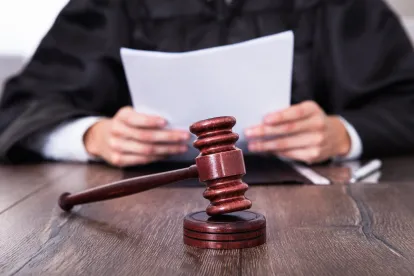Reversing the Patent Trial and Appeal Board, the US Court of Appeals for the Federal Circuit concluded that because a plaintiff was a successor in bankruptcy, it was a successor in an inter partes re-examination. The Court held that the plaintiff should be substituted for the original requestor following the sale of the original re-examination requestor’s right, title and interest in, to and under its assets to a holding company, which further assigned such assets and interests to the plaintiff. Mojave Desert Holdings, LLC v. Crocs, Inc., Case No. 20-1167 (Fed. Cir. Feb. 11, 2021) (Dyk, J.)
The dispute originated in 2012 when Crocs sued Dawgs for patent infringement. Dawgs responded by filing a third-party request for inter partes re-examination, which the US Patent & Trademark Office granted. The examiner rejected Crocs’ challenged patent claim as anticipated, and Crocs appealed to the Board.
While the appeal was pending, Dawgs filed a petition under chapter 11 of the Bankruptcy Code. Dawgs moved the bankruptcy court to approve the sale of all of its assets to a recently formed entity, Dawgs Holdings, free and clear of all liens, claims and encumbrances pursuant to Bankruptcy Code. The relevant provision of the Asset Purchase Agreement assigned Dawgs Holdings:
[a]ll of [Dawgs’] right, title and interest in, to and under all of the assets, properties and rights of every kind and nature, whether real, personal or mixed, tangible or intangible (including intellectual property and goodwill) . . . .
The sale order carved out from the free and clear language “any Claims [Crocs] . . . may hold for patent infringement occurring post-Closing.” Shortly after the closing, Dawgs Holdings assigned all rights, including explicitly the claims asserted by Dawgs in the district court action and the inter partes re-examination, to Mojave.
Months later, Mojave moved the Board to change the real party-in-interest from Dawgs to Mojave. The Board dismissed and expunged the request because:
- The sale from Dawgs to Dawgs Holdings was silent with respect to the inter partes re-examination.
- Mojave was not a party to the inter partes re-examination proceeding.
- Mojave did not have standing to update the real party-in-interest.
- Mojave did not file its submission within 20 days of any change of the real party-in-interest as required by 37 CFR § 41.8(a).
Subsequently, the Board reversed the examiner’s rejection of Crocs’ patent claim, which decision Dawgs appealed to the Federal Circuit, while simultaneously filing a motion to substitute Mojave.
In granting the substitution motion, the Federal Circuit noted the broad language describing the sale of all of Dawgs’ assets to Dawgs Holdings. The Court distinguished the sale language from the sale language in other cases where a buyer in bankruptcy may only acquire “substantially all” of the assets of another entity. Because the language describing the transfer from Dawgs to Dawgs Holdings was so broad, the Federal Circuit concluded that the transfer from Dawgs Holdings to Mojave included the interests in Dawgs’ claims and its successor-in-interest requestor status in the inter partes re-examination proceeding.
The Federal Circuit also rejected Crocs’ other arguments not specifically related to the successor-in-interest issue, including that Mojave did not seek substitution within the 20 days as required by the Code of Federal Regulations and that the interest of a requester cannot be assigned under the statute governing appeals from inter partes re-examination. The Federal Circuit rejected these arguments because the purpose of the 20-day time limit is to detect conflicts of interest and is unrelated to substitution, and because Mojave was not a “mere priv[y]” of Dawgs such that it would be prohibited from appealing a re-examination.
Lastly, the Federal Circuit found that Mojave had standing because post-closing infringements were carved out from the sale order, and Mojave could have faced potential liability by selling inventory that Crocs claimed infringed its patent.



 />i
/>i

